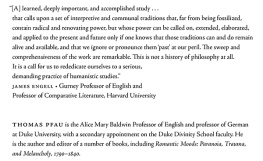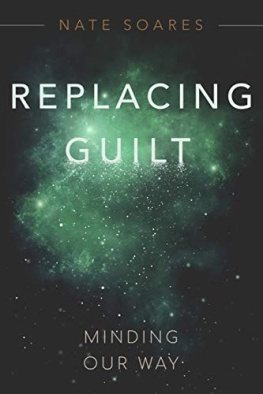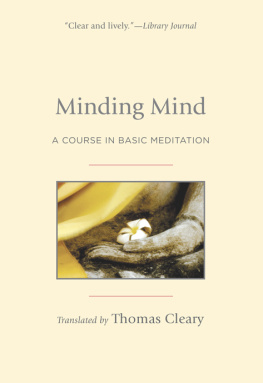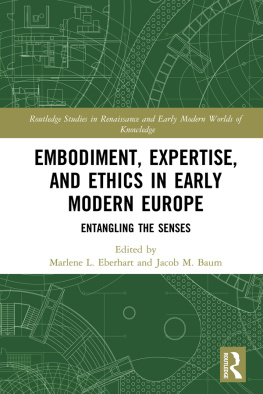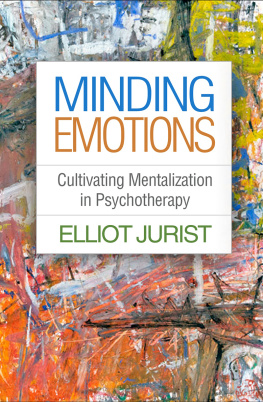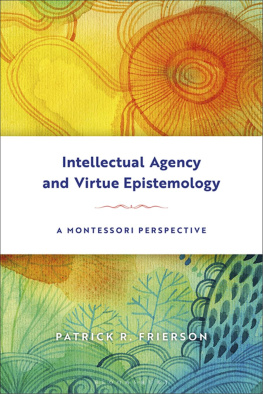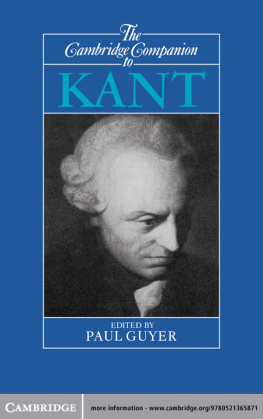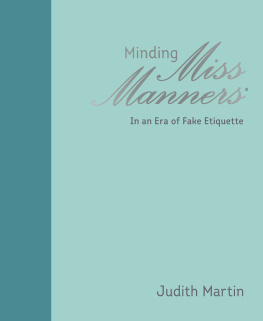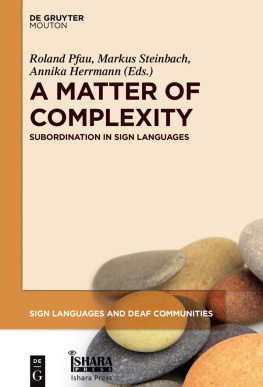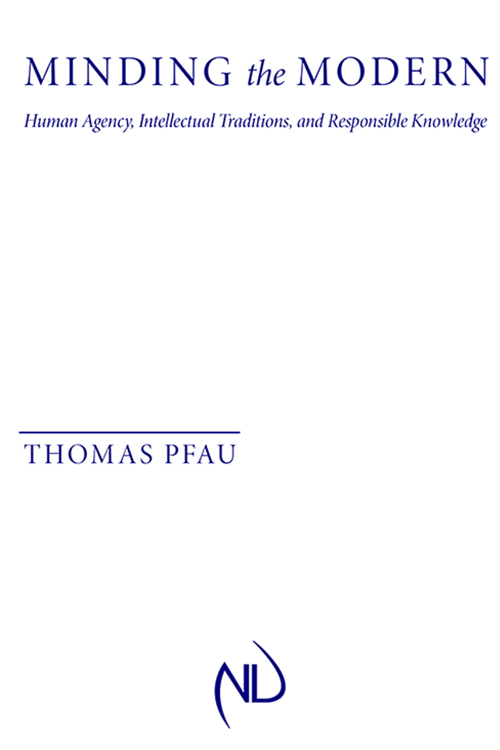
MINDING the MODERN
Human Agency, Intellectual Traditions, and Responsible Knowledge
THOMAS PFAU
UNIVERSITY OF NOTRE DAME PRESS
NOTRE DAME, INDIANA
Copyright 2013 by University of Notre Dame
Notre Dame, Indiana 46556
All Rights Reserved
E-ISBN 978-0-268-08985-6
This e-Book was converted from the original source file by a third-party vendor. Readers who notice any formatting, textual, or readability issues are encouraged to contact the publisher at
CONTENTS
ADT | St. Augustine of Hippo, The Trinity [De Trinitate] |
AR | Samuel Taylor Coleridge, Aids to Reflection |
AV | Alasdair MacIntyre, After Virtue |
BL | Samuel Taylor Coleridge, Biographia Literaria |
BT | Martin Heidegger, Being and Time |
BTr | Boethius, Tractates, De Consolatione Philosophiae |
CCS | Samuel Taylor Coleridge, On the Constitution of Church and State |
CD | St. Augustine of Hippo, The City of God against the Pagans [De Civitate Dei] |
CF | Samuel Taylor Coleridge, The Friend |
CL | Samuel Taylor Coleridge, The Collected Letters of Samuel Taylor Coleridge |
CLS | Samuel Taylor Coleridge, Lay Sermons |
CM | Samuel Taylor Coleridge, Marginalia |
CN | Samuel Taylor Coleridge, Notebooks, 5 |
CPP | William Blake, The Complete Poetry and Prose |
DCD | John Henry Newman, An Essay on the Development of Christian Doctrine |
EPA | Francis Hutcheson, An Essay on the Nature and Conduct of the Passions and Affections, with Illustrations on the Moral Sense |
GHA | Johann Wolfgang von Goethe, Werke |
HC | Hannah Arendt, The Human Condition |
HI | Francis Hutcheson, Inquiry into the Original of Our Ideas of Beauty and Virtue |
HT | David Hume, A Treatise of Human Nature |
Lev. | Thomas Hobbes, Leviathan |
LHP | Samuel Taylor Coleridge, Lectures on the History of Philosophy, 18181819 |
LMA | Hans Blumenberg, Legitimacy of the Modern Age |
MFB | Bernard Mandeville, The Fable of the Bees: or Private Vices, Publick Benefits |
OM | Samuel Taylor Coleridge, Opus Maximum |
PG | G. W. F. Hegel, Phnomenologie des Geistes |
PS | G. W. F. Hegel, Phenomenology of Spirit |
Quodl. | William of Ockham, Quodlibetal Questions |
SC | Anthony Ashley Cooper, Third Earl of Shaftesbury, Characteristicks of Men, Manners, Opinions, Times |
ST | St. Thomas Aquinas, Summa Theologiae |
SW & F | Samuel Taylor Coleridge, Shorter Works & Fragments |
SZ | Martin Heidegger, Sein und Zeit |
TI | Emmanuel Levinas, Totality and Infinity: An Essay on Exteriority |
TMS | Adam Smith, The Theory of Moral Sentiments |
TT | Samuel Taylor Coleridge, Table Talk |
WMA | Johann Wolfgang von Goethe, Wilhelm Meisters Apprenticeship |
WWR | Arthur Schopenhauer, The World as Will and Representation |
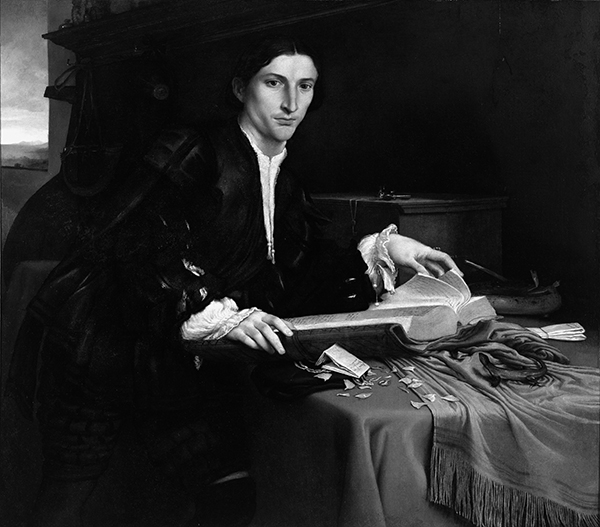
Portrait of a Gentleman in his Study, 152830, Lorenzo Lotto (c.14801556) / Galleria dell Accademia, Venice, Italy / The Bridgeman Art Library
Modernitys Gaze
T he young mans forlorn, abstracted, and blank gaze suggests disorientation and incipient melancholy: we cannot meet his eyes, and they will not meet ours. Indeed, the beholder of Lorenzo Lottos canvas may feel somewhat flustered, as though he or she had accidentally intruded on a scene of intensely personal, albeit ineffable anguish. For Lottos young man, whose identity remains unknown, seems utterly alone in the worldthe quintessentially modern, solitary individual confined to his study in ways familiar from the candle-lit interior of Descartess Meditations all the way to the cork-lined refuge where Proust would labor on his magnum opus. Yet Lottos youth also appears bereft of the dynamism, confidence, and sense of purpose usually claimed for the modern, autonomous selfbe it Descartess cogito, John Lockes consciousness, or Johann Gottlieb Fichtes founding act (Tathandlung). The cold-blooded lizard and discarded ring on the table hint at the loss of ros as a source of motivation, an impression compounded by the fact that lute and hunting horn, emblems of conviviality and worldly pleasure, are now hung up on the wall in the background.happened upon a scene of palpable melancholy. Thus, even as a massive folio dominates the picture, the young mans irresolute posture intimates that books no longer hold answers, perhaps because the right questions elude him. On one widely accepted interpretation, the tome is a business ledger. Other, earlier accounts view the massive folio as emblematic of a life of study to which the man now means to dedicate himself. Either way, the relation of the young mans body to the book suggests a state of incapacitation and inertia, rather than gathering resolve. Moreover, the enigmatic knowledge contained in the folio may well account for the young mans distracted and withdrawn expression. Hence it is that the books ponderous mass supports the young man only physically. For his body, leaning on it, strikes a twisted, faintly artificial pose, and his left hand betrays his distracted and indifferent attitude toward the book. Moreover, the absence of a chair, of paper and quill in this study, as well as the miscellaneous array of a half-opened letter and a ruffled blue silk cloth casually bunched up beneath the folio all suggest a psychological state of abstractive loitering rather than focused and purposive study.
Meanwhile, the unwieldy folio appears more as dead mass than as a repository of learning. We suspect that the unspecified past wisdom contained in it has but the most tenuous hold on the young man whose consciousness, to judge by his withdrawn gaze, appears altogether adrift. If the book seems incapable of answering questions, it is so because for Lottos youth to articulate those questions would require contact with an outside world of experience from which he has quite obviously withdrawn. Sequestered into gathering darkness, the young man appears wholly bereft of sense experience, interpersonal relations, and commitments such as define the world outside his study. That world has been reduced to a narrow slice of landscape faintly illumined from the horizon and soon to be expunged from sight by the nocturnal clouds gathering overhead. Yet, to return to the heart of the painting, the book: does the massive tome with its worn leather binding constitute a bona fide repository of learning, or is it but an emblem of the futility or sheer elusiveness of knowledge? Do the fading rose petals, conventional emblems of transience and of time lost, stand in metonymic relationship to the books vellum leaves so distractedly fingered by the man? Is it truly a book, or are we to take it as an emblem of a lost plenitude, an allegory of the premodern cosmos that has been displaced by numberless theoretical perplexities liable to induce the terror of Blaise Pascals silent, infinite spaces? Indeed, if the book no longer stands for the plenitude of (past and future) meanings but, instead, allegorizes the terminal loss of certainty in matters of both speculative and practical reason, can art (including the art of this painting) be said to fare any better? Aside from confronting us with modernitys pervasive loss of intellectual orientation and practical purpose, might Lottos canvas also suggest that art itself can only tabulate, yet never remedy that very predicament?
Next page
